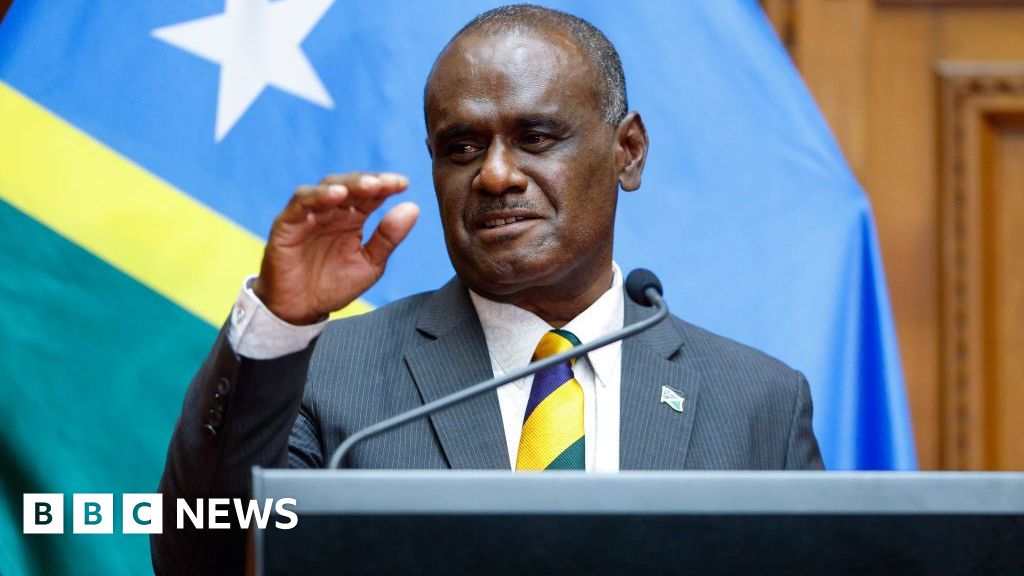- author, Francis Mao
- role, bbc news
-
Solomon Islands lawmakers have elected a pro-Beijing candidate as prime minister, signaling the Pacific nation will remain a close ally of Beijing.
Jeremiah Manele won Thursday's vote for prime minister, defeating his opponent Matthew Wale by a count of 31 to 18.
He will replace former Prime Minister Manasseh Sogavare, a vocal critic of the West.
Manele was foreign minister in 2019, when the Solomon Islands opted to switch Taiwan's longstanding diplomatic recognition to China, a move that shocked neighboring countries.
He has already signaled his intention to continue close ties with China, including a secret defense and security agreement for the island. Opposition candidates had suggested they might withdraw from the deal, or at least release its full details to the public.
But analysts also expect Manele to take a less confrontational approach to the Solomon Islands' traditional Western powers, such as Australia, than his predecessor. He is also seen as a more diplomatic communicator.
Australian Prime Minister Anthony Albanese was among the first to congratulate Manele on Wednesday and said he looked forward to working closely with the new leader.
“Australia and the Solomon Islands are close friends and our futures are linked,” he wrote on X (formerly Twitter).
Voters elected national parliamentarians in April's vote, but the prime minister and leadership will be decided by MPs elected in a vote held Thursday morning.
Mr Sogavare last week chose not to run for prime minister in a surprise move after his party received a weaker-than-expected result in the April 17 general election.
Instead, he formed a new coalition government and supported Manele as his party's candidate for prime minister.
Sogavare became an increasingly polarizing figure during his five years in office, during which time China rapidly increased its investment in the country.
After Thursday's victory, the new leader stood behind Manele as he addressed the media.
“I will always put the interests of the people and the country above all else,” Manele said.
He also noted that although violence and street riots have occurred after voting in the Solomon Islands before, the election was held peacefully.
Hundreds of police and military personnel from Australia, New Zealand, Fiji and Papua New Guinea have been stationed in the country as peacekeepers since last month.
“Today we showed the world that we are better than that. We must respect the democratic process of selecting a prime minister,” Manele said.
He said the government aims to improve the economic situation of local residents who are enduring rising costs of living.
This poor country of several hundred islands is home to about 700,000 people.
More than 80% live on the outskirts of the capital, Honiara, without easy access to basic services such as electricity, schools, clinics and public transport.


